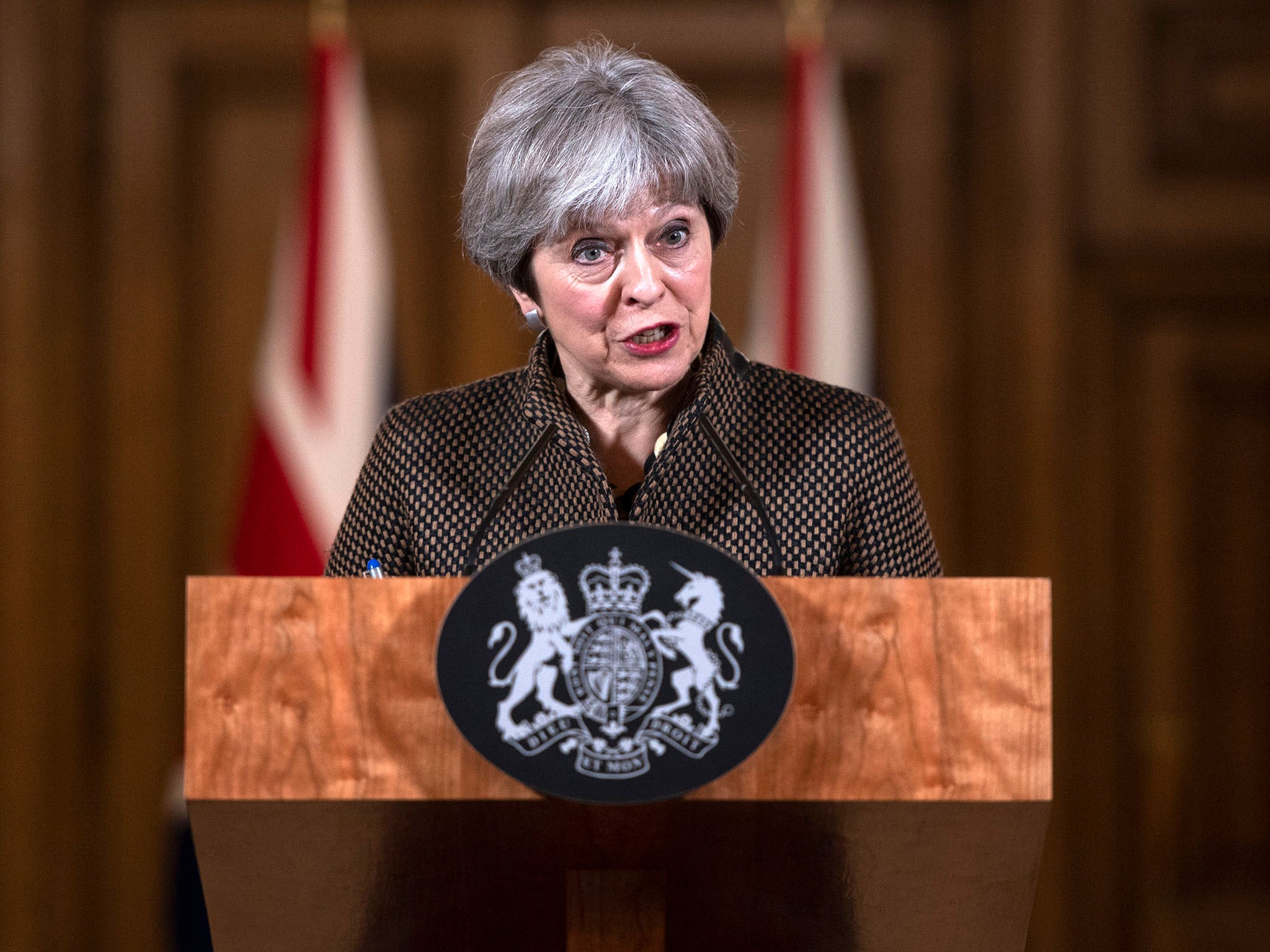Theresa May signals U-turn on treatment of Windrush generation but refuses to apologise to people threatened with deportation
Asked if the people affected deserved 'an apology', Prime Minister's spokesman says only that it is a 'matter of regret' if lives had been disrupted

Your support helps us to tell the story
From reproductive rights to climate change to Big Tech, The Independent is on the ground when the story is developing. Whether it's investigating the financials of Elon Musk's pro-Trump PAC or producing our latest documentary, 'The A Word', which shines a light on the American women fighting for reproductive rights, we know how important it is to parse out the facts from the messaging.
At such a critical moment in US history, we need reporters on the ground. Your donation allows us to keep sending journalists to speak to both sides of the story.
The Independent is trusted by Americans across the entire political spectrum. And unlike many other quality news outlets, we choose not to lock Americans out of our reporting and analysis with paywalls. We believe quality journalism should be available to everyone, paid for by those who can afford it.
Your support makes all the difference.Theresa May has signalled a U-turn on the treatment of the Windrush generation of British residents – but refused to apologise for people who have lost their jobs or been threatened with deportation.
The Home Office will announce changes to the policy later today to ensure the “correct solution” for those facing action because they lack paperwork, having arrived in the UK decades ago, No 10 said.
The Prime Minister’s spokesman also announced that Ms May would meet with Commonwealth leaders to discuss the controversy – having earlier refused the talks.
However, questioned by The Independent, he ducked the issue of whether she bore “personal responsibility” for any mistakes made, having been Home Secretary when the crackdown was introduced.
And, asked if the people affected deserved “an apology”, he said only that it was a “matter of regret” if lives had been disrupted.
Asked what policy changes would be made, the spokesman said: “You can expect further details from the Home Office later today.”
Earlier, the Barbados high commissioner revealed that the Government had told 12 Caribbean countries that it was “not possible” to have direct talks on the plight of the Windrush generation.
But, announcing that U-turn, Ms May’s spokesman said: “She will be holding a meeting to discuss the concerns in relation to the Windrush generation this week.”
Meanwhile, Caroline Nokes, the immigration minister, appeared to admit that some people had been deported because they lacked the correct documents – but could not say how many.
Interviewed by ITV News about deportations, she replied: “There have been some horrendous situations that as a minister have appalled me.”
Asked how many, she replied: “I don't know the numbers but what I am determined to do... is say we'll have no more of this.”
The changes, demanding extra documentation from people who often arrived in the UK as children many decades ago, and consider themselves British, were introduced by Ms May in 2012.
Some people have been threatened with deportation to countries they left as children 50 years ago and have not returned to since – or, it is believed, have already been sent there.
Others have been denied access to healthcare, lost jobs or been made homeless as they do not have sufficient paperwork to prove they have the right to be in the UK.
Although anyone living in the UK continuously since before January 1 1973 is legally entitled to live in the UK, people who have not applied for passports.
Some people moved before the countries they were born in became independent, and assumed that they were British.
The Migration Observatory at Oxford University estimates that some 50,000 Commonwealth-born people in the UK, who arrived before 1971, may not yet have regularised their residency status.
Join our commenting forum
Join thought-provoking conversations, follow other Independent readers and see their replies
Comments